Dr Rachel Reed
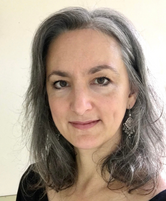
Dr Rachel Reed is a midwife, author, teacher, researcher, and international speaker. Her focus is childbirth physiology, care provider practice, and women’s rights (and rites). Rachel co-hosts The Midwives’ Cauldron podcast and writes the award-winning blog MidwifeThinking. She is widely published, and her most recent book is Reclaiming Childbirth as a Rite of Passage.
New expectations: Shifting roles and relationships in the childbirth rite of passage
Childbirth has always been a holistic and transformative rite of passage for women. In recent decades childbirth culture and context has changed significantly. This presentation will discuss the role of care providers and birth partners in the modern childbirth rite of passage.
Dr Jen Hocking
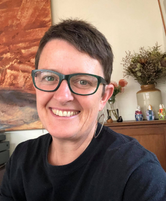
Jen is a registered nurse and midwife who worked in the public maternity system in Victoria for 20 years between 1997 and 2018. Jen has been a lecturer in the Bachelor of Midwifery program at the Australian Catholic University since 2018. Jen’s PhD was an ethnographic study examining the clinical practice of Lactation Consultants who provide support and care for breastfeeding women. She found that relationships were central to the care they offered. Jen is interested in how midwives and healthcare systems can support fabulous breastfeeding experiences that build connection between mothers and their newborn babies.
Jen likes yoga, running with her dogs and Twitter: @jenhock13
What does awesome breastfeeding support look like?
A focused ethnographic study that involved ‘deep hanging out’ with Lactation Consultants while they worked in clinical settings with breastfeeding women and families revealed some interesting information about the nature of breastfeeding support. LCs were committed to seeing breastfeeding as a relational activity between mother and baby and many principles of woman-centred midwifery practice were observable in their holistic approach to care. This presentation will discuss the findings from this PhD research with a particular focus on providing insights for midwives – who of course have a unique opportunity to support women with breastfeeding right from the start.
Skye Stewart
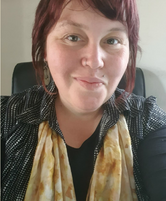
Skye Stewart is a Registered Midwife, Special Projects Officer and Research Coordinator. First and foremost, they are a proud Wergaia and Wamba Wamba Custodian and Caretaker. Skye’s cultural role and responsibility is to do what they can to ensure Aboriginal parents and their babies stay safe, well, alive and together. Skye has extensive knowledge and experience of working with Aboriginal community in Victoria and has supported many families accessing and navigating the maternity care system. They are also passionate about having conversations with healthcare professionals to ensure cultural safety and wellbeing for Community is at the centre of their care.
Culturally safe conversations with Aboriginal families following stillbirth
Compared to our non-Indigenous friends, Aboriginal families are more likely to have a baby die during pregnancy or when bub is an infant. We know that hard and difficult conversations need to happen with families when their baby has died, however we need to make sure that the care we provide is kind, considered and holistic. When working with Community; cultural safety, consideration and appropriateness is pivotal as the centre of care. Skye talks about ways of guiding these conversations with Aboriginal ways of knowing, being and doing as the foundation when working with community in Sorry Business after the devastating death of a baby.
Dr Laura Biggs
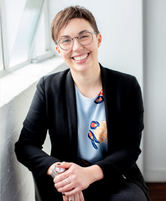
Dr Laura Biggs is a midwife and postdoctoral researcher in the Refugee and Migrant Program, Intergenerational Health, Murdoch Children's Research Institute. Laura's research focuses on innovative policy and practice change in maternity care, particularly relating to trauma informed care, maternal suicide prevention, and health inequities. She also has a strong interest in workforce wellbeing, and the role of lived experience in health professional practice and education.
A grounded theory of the evolution of perinatal suicidality
As a leading cause of maternal death, there is an urgent need to generate deeper understandings of how suicidality manifests and evolves in the perinatal period. Several perinatal studies have examined the incidence of suicidal thoughts and behaviours and associated social and obstetric risk factors, however there is very limited research offering insights into women’s experiences of suicidality at this time in their lives. Making Sense of the Unseen, a collaboration between Murdoch Children’s Research Institute, James Cook University, and PANDA Perinatal Anxiety & Depression Australia, sought to address this knowledge gap by generating a theory to explain how suicidality evolves during pregnancy and the following year. Our overall goal was to generate knowledge to support communities, health professionals, and health services and systems to improve maternal suicide prevention initiatives. More broadly, we also aspired to bring attention to maternal suicide prevention as a core responsibility of quality maternity care. In this presentation, Laura will share the grounded theory and highlight the unique position of midwives to contribute to maternal suicide prevention efforts.
Dr Linda Campbell
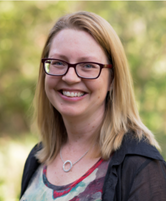
Linda is an Associate Professor at The University of Newcastle and has been teaching and researching in the area of developmental disabilities, parenting and mental health for the past 20 years. Linda is also a clinical psychologist who work in private practice with a particular focus on working with families where a child has a developmental disability. She is passionate about supporting parents in their journey as they navigate complex health care systems and other challenges related to having a child with a disability. Linda recharges by being in nature, going for bushwalks, kayaking and gardening. Twitter @drlindacampbell
Supporting mums through difficult decisions in pregnancy
The talk will discuss the intersection of decision making and mental health in pregnancy. In Australia, using non-invasive prenatal testing (NIPT) to screen for fetal abnormalities is becoming more commonplace. However, there is a lack of standardised procedures surrounding pre-test counselling. This holds the potential for variability in pregnant people’s experiences when undergoing NIPT, which subsequently may impact their ability to make informed decisions surrounding NIPT results.
Tija Blums
Tija has worked as a midwife in the Midwifery Group Practice/Homebirth program at Western Health since 2017. Before that she worked as a midwife in various places around Australia and in the Solomon Islands. She examined the inclusion and exclusion criteria of publicly-funded homebirth programs for her Masters dissertation.
Inclusion and exclusion criteria for publicly funded homebirth programs in Australia
Inclusion and exclusion criteria for publicly funded homebirth programs in AustraliaAn examination of the common criteria used by publicly-funded homebirth programs and women's views of the criteria and the impact on accessibility.
Koori Maternity Service
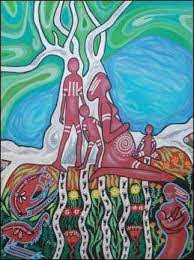
Koori maternity services are uniquely Victorian and have provided flexible, inclusive and culturally safe maternity care to Aboriginal women, babies and families since 2000. Koori Maternity Services offer flexible, person-centred care, strengthened by Aboriginal culture and practice and built upon respectful trusting relationships between women, their families and Koori Maternity Service staff. The goal of Koori Maternity Services is to ensure that Aboriginal women and families receive culturally safe and high-quality pregnancy care.
VACCHO
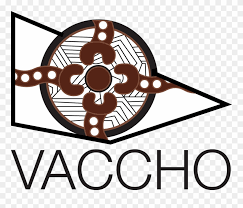
Victorian Aboriginal Community Controlled Health Organisation is the peak body for Aboriginal health and wellbeing in Victoria – the only one of its’ kind – with 32 Aboriginal Community Controlled Organisations as Members. VACCHO Members support over 25,000 Aboriginal people in Victoria, and combined are the largest employers of Aboriginal people in the state.